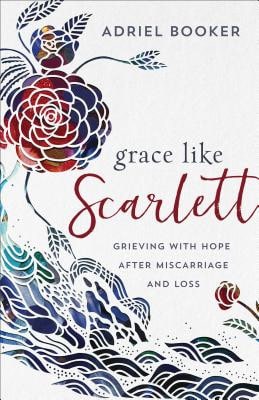Words of Comfort for Miscarriage
Trying to offer words of comfort to a friend or family member who has experienced a miscarriage can be scary, painful, awkward, and intimidating. I’ve heard a bereaved mom say, “I feel like everyone is avoiding me.” Truthfully, I’ve been tempted many times to preserve my feelings and comfort at the expense of not fulfilling Ecclesiastes 4:9-10, which explains the benefit of being next to someone when they face trouble. How is it possible to help or comfort someone after a traumatic loss? It is scary, but it can be done!
Jesus knew He would raise Lazarus from the dead, but when Mary cried, He cried. His compassion was the precursor for miracles. Compassion and empathy are amazing instigators of acts of love and a mark of a good friend! If your response has these elements, your friend or family member will be blessed.
Miscarriage Awareness for the Whole Person
Over fifteen years in ministry has taught me not to say to a person in crisis, “I know how you feel.” I may have been through something similar, but it is impossible to know exactly how someone feels. A better statement might be, “I don’t understand how you feel, but I care and want to be here for you.”
In 1 Thessalonians 5:23, the Bible says that we are spirit, soul, and body. When a pregnant mother is told that her child is not living, it is not just her body that is traumatized but also her soul and spirit. These three parts of a person typically heal at varying speeds. The physical pain of delivery without the benefit of having her child is one type of trauma. Her soul can be vexed with terror, guilt, and fear while her emotions and hormones run wild or are numb. Her spirit may be wounded while her body continues to function just as if her child still has a heartbeat.

When you think about what a friend of family member might be experiencing, it will stir compassion that will help you say and do things that are healing and offer comfort to the whole person who lost a baby due to miscarriage.
Words of Comfort for Miscarriage and Triggers
When I was a teenager, an adult spread a horrible lie about me. Prior to forgiving the woman and experiencing healing, one whiff of the perfume I wore that day immediately transported me back to the trauma. I would experience humiliation, betrayal, shame, embarrassment, and pain all over again.
If your friend has experienced a miscarriage, remember that her senses are processing through a filter of grief, pain, guilt, hormones, and shock. All five senses have been overloaded. Her body feels the pain, her eyes have seen death, her ears have recorded sounds of trauma. Her arms ache to hold and protect the child who has been lost. It is important to show kindness, patience, and understanding even if the grieving person is impatient, weepy, or angry. Unconditional love will be required for words of comfort to reach a wounded heart who has experienced miscarriage.

Painful Miscarriage Triggers
I never knew the perfume I wore would trail me for over 30 years. It is not possible to know what words, sounds, or smells may trigger painful memories. One grieving mother is triggered at the sound of a baby crying, while another grieving parent struggles when seeing the color baby blue.
It is not possible to know ahead of time what words or phrases may trigger your friend or family member. Therefore, be mindful that triggers may be present and look through the list below to give guidance. However, be kind to yourself. Even as hard as you try, they may still be triggered by something said. It is okay. There is grace for all who are doing their best to offer words of comfort regarding a miscarriage.
Below are questions often asked of grieving parents after a miscarriage and how the questions might be perceived:
Triggers
“Can I see a picture?”
- The words “see” and “picture” are words that tap into the sight sense. If there is something in the picture that the parent is still processing, mentioning it activates the mind to access memory, they may not be ready to process. Some parents also feel protective of photographs and find this question intrusive.
“How did the doctor tell you about the loss?”
- This question stimulates the sense of hearing. Again, her mind will access what she heard, and that sense can activate the pain of the memory.
“Did you get to hold the baby?”
- This question accesses the memory that came in through the sense of touch. If there are painful memories in those senses, you will have set off a landmine of pain that could have been avoided.
Join Laura Huene and her husband Josh as they share their experience with an adverse diagnosis.
Miscarriage Awareness: Follow the Grieving Parent's Lead
If you hear the grieving parent call their child by name, then do the same. Perhaps you can say, “Lily is a beautiful name.” or “I’ve always liked the name, Jonah.” There are no sensory triggers in those affirming sentences.
If the bereaved parent talks about the birth or anything else, listen. Think about the words you want to say from the viewpoint of grief. A clinical social worker and certified prevention specialist, Amber Hackney, says, “Trauma needs to be processed without others imposing their own opinion. Everyone processes grief differently.”
Candy McVicar shares how she found healing after losing two babies.
Words of Comfort for Miscarriage Come From Compassion
Luke 6:45 says that out of the abundance of the heart, the mouth speaks. There’s nothing that will tame the tongue like a heart full of compassion. Often a person will show love in a way that they receive love. By following the leading of your friend or family member in how they express care, it may give you some hints on ways that you can comfort them. Understanding the five love languages may help in ways to offer appropriate words of comfort.
What Not to Say to Someone Who Lost a Child
My friend winced in pain when she touched her neck after surgery. The warning from the doctor was that she could hemorrhage if the bandage were removed. Picking at the tape before she healed could have been life-threatening.
In the same way, there are emotional wounds after a miscarriage that words can aggravate. The words may sound okay to the person saying them but can get translated through the filter of pain to be harmful. Hurtful comments could be:

Possible Harmful Phrases
“You can have more children.”
- Translated through grief, this could be received to mean, “Your baby did not matter and is replaceable.”
“Be thankful you already have a child.“
- The statement could translate into a cruel accusation and insinuates that if the miscarriage is grieved, the parent isn’t thankful for a living child.
“It may be for the best.”
- The child may have died, but the mother’s mama bear instincts are likely stuck on go mode. To suggest that what a grieving parent is experiencing is a good thing or that God intended harm is unfathomable.
“It’ll all work out.”
- While this may work out in the end. Hearing those words does not offer comfort and space for the healing process.
What if I Lost a Child?
It is essential to recognize that this may trigger pain from your miscarriage or infant loss. Please seek help for yourself and work through your own process of grief. Remember, grief and trauma can have many layers and triggers. Even if it has been a while, it is worth getting help for yourself as you seek to offer comfort.
Helpful information:

Talk to a Counselor
Reach a counselor toll-free at 1-855-771-HELP (4357).
You Can Comfort Someone Who Had a Miscarriage
If you think about your friend, and if you allow the compassion of Christ to fill your heart, you are not going to fail at the mission to love your grieving friend. Just your presence is likely going to provide a measure of comfort. Be bold and courageous in your unconditional love. Let your light shine so brightly that when your friend looks back, it will be said, “I had a friend who was there for me. I am loved, and I was not alone.” You can do it. You can share in their pain, show real love, and be a part of the healing process. You can offer words of healing and comfort for a miscarriage.

Grace Like Scarlett: Grieving with Hope
With tenderness, Adriel Booker shares her own experience of three consecutive miscarriages, as well as the stories of others. She tackles complex questions about faith and suffering, inviting women to a place of grace, honesty, and hope in the redemptive purposes of God without offering religious cliches or pat answers.




















